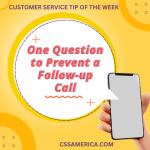Chester University in the United Kingdom decided that it wanted to make sure that as many final year students as possible completed a survey on their satisfaction. A recent article (http://www.chesterfirst.co.uk/news/85995/university-s-novel-approach-to-student-satisfaction.aspx) highlighted a creative way that the Administration promoted the survey. They simulated an airport check-in environment (with a bank of computers), dressed like pilots, and marketed taking the survey as an event.
Wow!
Just to get information from students they did all this? Why?
They did it because according to one of the administrators “It’s vital that as many final year students in as many subject areas as possible complete the survey so that the university can gain a true picture of where it does well and where it could do better. The results can bring about real change, for example, previous surveys have led to increased access to library facilities before exams and more copies of key texts on reading lists being made available.”
This organization realized the link between the voice of the customer (in this case, the student) and changes that would truly benefit their customer base. They understood that some of the best ideas come straight from your customers. They understood that you have to appropriately promote a survey to get maximum interest and participation.
They understood that the ideas and suggestions of the customers of today could have a positive impact on the customers of tomorrow.
The next time you consider a survey, consider how you promote it. Consider what you want to ask of today’s customers that would enable you to better serve the customers of tomorrow.
Interested in improving your company’s customer service? See more information at: http://www.cssamerica.com/





















